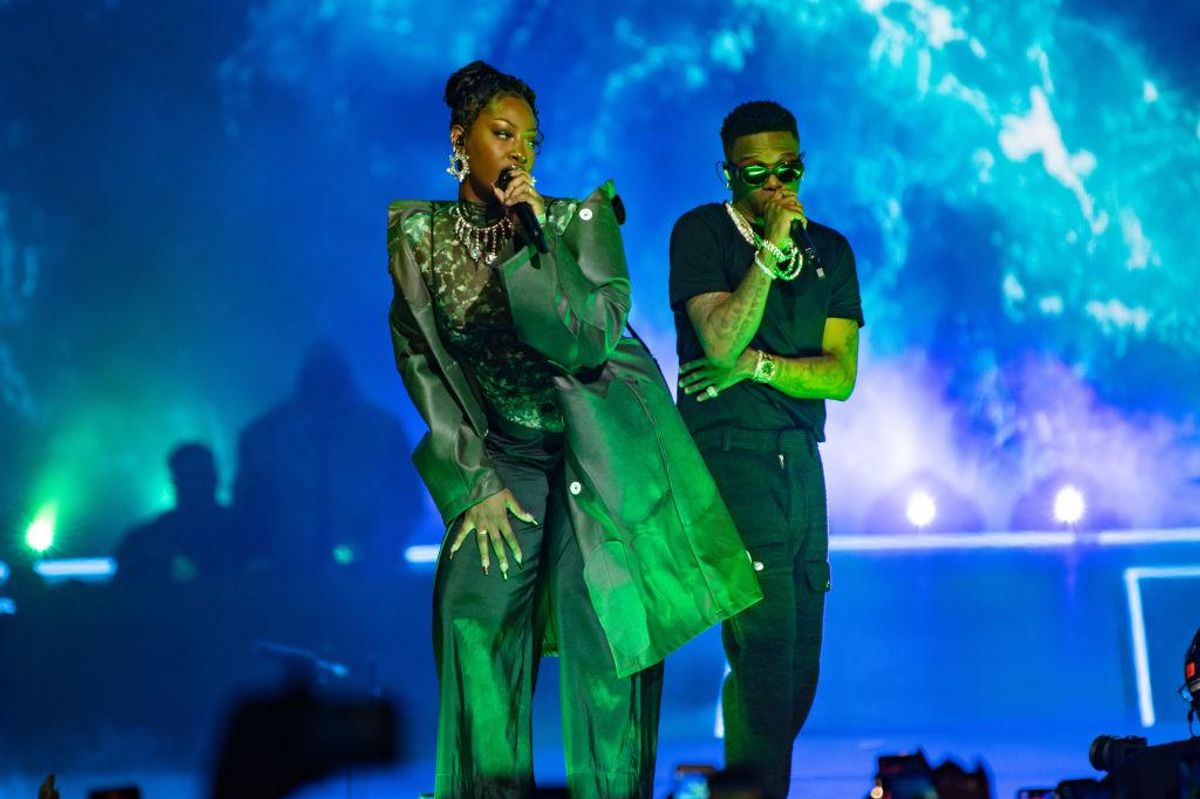What Does the New U.S. Afrobeats Chart Mean For the Perception of African Music?
Written by ABR on 04/04/2022

On March 29, Billboard published the debut edition of its new weekly chart ranking the 50 most popular Afrobeats songs in the United States. The legacy publication made the announcement alongside Afro Nation, who serve as partners, a week prior. This development is coming nearly two years after Afro Nation partnered with the UK’s Official Charts Company to launch a 20-song chart spotlighting the most popular Afrobeats songs in the UK.
Just before that UK chart became operational, immediate reactions set-up another round of reckoning for the term ‘Afrobeats’, and what it means as a catch-all descriptor for music with African roots or, just generally, music being made by African artists. Coined in the late 2000s by UK-born and raised DJ Abrantee, Afrobeats first became an umbrella tag for the range of urban pop music emanating from West Africa, predominantly those from Nigeria and Ghana. In the following years, and as varying styles of African music trudged across the Atlantic to grab the ears of international audiences, the term was lazily applied to any and every sound regardless of sonic distinction.
Prior to its debut week in late July 2020, that UK chart shared a list of the top 20 Afrobeats songs in the preceding week, and the appearance of musically disparate songs like J Hus’ “Must Be,” Wizkid’s “Joro” and Aya Nakamura’s “Djadja” underlined the ambiguity and flattening effect of Afrobeats. Billboard didn’t publish a similar precursor list, nor did the announcement of a U.S. Afrobeats generate that much conversation on social media beyond celebratory remarks, but it’s worth wondering what the effect of this new chart will be on the very perception of music being made and pioneered by Africans.
This week’s top 5 on the inaugural U.S. Afrobeats Songs chart:nn1. @ckay_yo Love Nwantiti (Ah Ah Ah)n2. @fireboydml & @edsheeran Perun3. @wizkidayo ft. @justinbieber & @temsbaby Essencen4. @Omah_Lay & @justinbieber Attentionn5. @temsbaby Free Mind— billboard charts (@billboard charts)
1648575693
“On a global level, it’s a good development, because it shows that Afrobeats is now becoming a respected genre of its own, just like Rap, R&B, Jazz, and stuff,” veteran Nigerian journalist and entertainment consultant, Ayomide Tayo tells OkayAfrica. “It means there are numbers to back up what Billboard is trying to establish.”
Last year, Wizkid and Tems’ “Essence” became a stateside sensation, with ‘Song of the Summer’ considerations and becoming a top ten entry on Billboard Hot 100 singles chart following its Justin Bieber-assisted remix. Not too long after, CKay’s “Love Nwantiti” and Amaarae’s “Sad Gurlz Luv Money,” with Moliy and Kali Uchis, debuted on the same charts following TikTok-fueled virality, both further indicators that pop music by African artists has been fully seeded into the American mainstream music consciousness.
Charts might be a vainglorious metric but they provide tangible validation to the popularity of a song, an artist and, in this case, a genre. That’s what the U.S. Afrobeats chart offers on the optimistic side of things, attaching prestige to African pop as a stateside phenomenon. “Billboard’s new chart goes to show that Africa is where it’s at,” Evelyne Maingi, a marketing executive at Universal Music Kenya, says via text. At the same time, she offers that there’s “a whole lot of confusion on what African music is considered Afrobeats,” wondering whether the chart will take into account the vastness of African music.
View this post on InstagramA post shared by billboard (@billboard)
With English (and its pidgin variant) as the de-facto language, and a wide musical range that pulls influences from home-grown sonic forms, African-originated styles and globally-recognised genres like Rap, R&B, dancehall and dembow, Nigerian pop music consistently exemplifies the fusionist tendencies built to reach beyond local and continental audiences. Where a lot of the pop music from other African countries feature lyrics in local dialects—and there’s specificity embedded in genres like gengetone, Zougolou, Amapiano, Bongo Flava, Highlife, and more—Nigerian pop seems more palatable to a stateside audience on the prowl for ‘exotic’ sounds, albeit with enough familiarity that doesn’t require much work to enjoy.
“Personally, I felt indifferent [about the Billboard Afrobeats chart] because it’s going to lean heavily towards Nigerian music,” Ghanaian music industry consultant Paul Kojo Ayitey tells OkayAfrica. “Afrobeats is not one thing or from one country, but that’s what the chart will reflect for the most part even if there’ll be one or two Ghanaian artists on it.” As consistently shown by the only previous international chart, Ayitey’s concerns are not unfound. Last week’s UK Afrobeats chart features two songs headlined by Ghanaian artists, a spot with feature from Ghanaian rapper Black Sherif, one entry from a Cameroonian-French singer, while the remaining spots are taken up by Nigerian acts.
Even with a much bigger ranking size, the Billboard Afrobeats chart is reinforcing the hegemony. Led by CKay’s globally ubiquitous “Love Nwantiti,” the debut installment of the U.S. chart is almost exclusively packed with Nigerian pop songs, the only exception being Ghanaian singer Kelvyn Boy’s “Down Flat.” As much as charts are a reflection of popularity, they’re also a function of narrative and investment. With the seeming trend of its first eek, the narrative for this chart will constantly be pre-set for Nigerian artists—and those that fit the typical Afrobeats mould—to thrive, and labels and management teams focused on chart dominance will tilt their focus towards one side of African music.
“It’s not going to cut just the African artists out, it will also cut Nigerian artists that don’t compose music according to what the American market wants,” Ayomide Tayo adds. “That will narrow not just visibility, but it would support the wrong idea that music from Africa is one thing, when it’s actually very, very diverse.”



 ABR Group
ABR Group